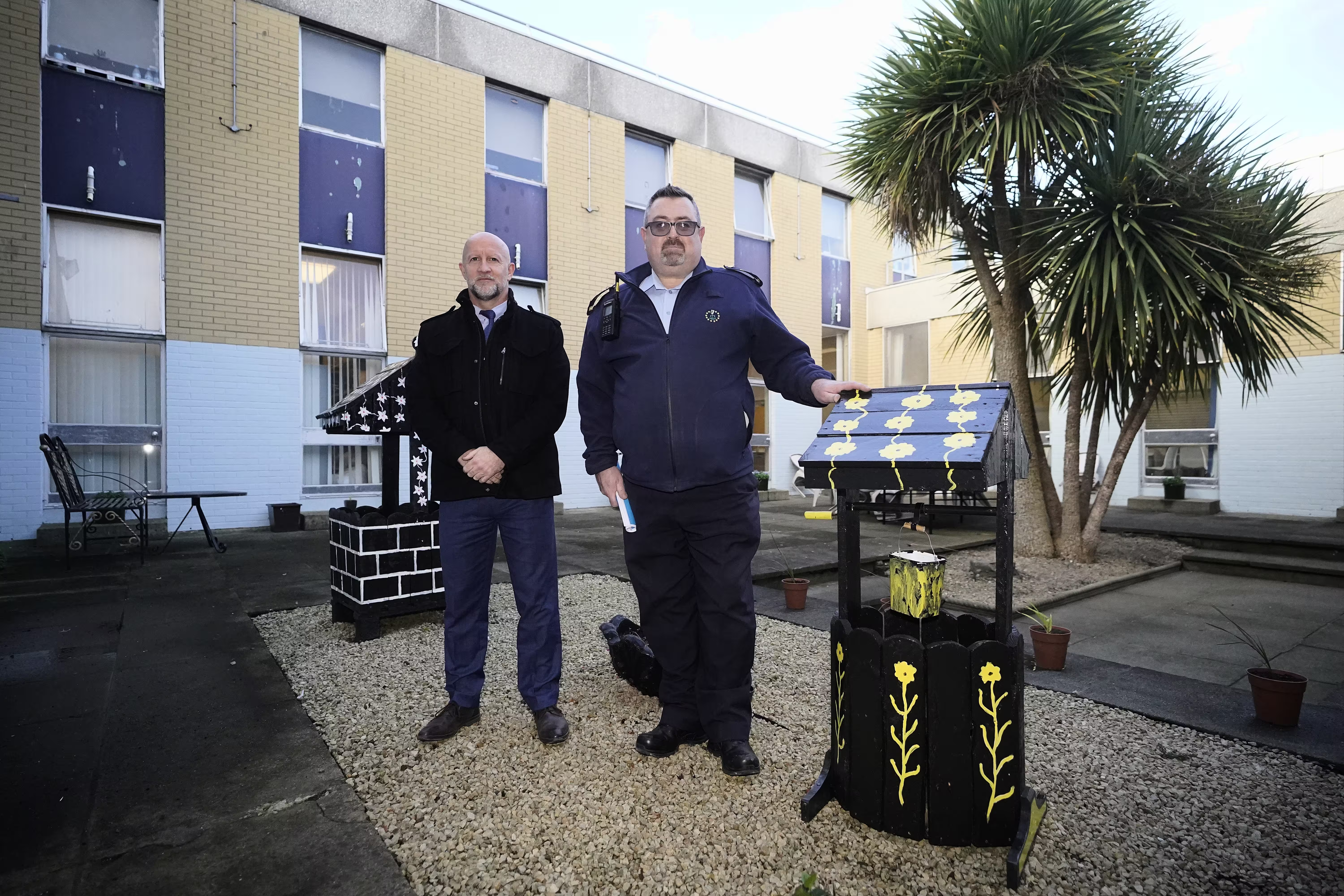By Cate McCurry, PA
Twice a day, around a dozen older prisoners gather in a workshop to repair old bicycles for refugees, restore broken furniture and build benches to raise money for a cancer charity.
The group of men, who range in age from 55 and into their 80s, are nearing the end of their prison sentences and are preparing for life outside the prison walls in Dublin.
The group of prisoners are part of a Men’s Sheds initiative set up in the Training Unit located on the grounds of the Mountjoy prison campus in north Dublin.
The shed, established with the help of the Irish Men’s Sheds Association, aims to help prisoners improve mental health and prepare them for their older years outside prison through communal work.

Brian Cahill, chief officer at the Training Unit, said the motivation behind the prison Shed is similar to the hundreds that have been set up across Ireland.
Mr Cahill, who oversees the workshops alongside assistant governor David Mulligan, said it includes prisoners preparing to leave prison and those who have a record of good behaviour.
“We were organising workshops and things for the boys to do to keep them busy. One of our priorities was giving them things to occupy the mind,” Mr Cahill said.
“We saw what they were doing at Men’s Sheds and saw that the age profiles were similar.
“We are not training these men the way we would other prisoners for job interviews, but instead getting them ready to take care of themselves and ease into retirement.
Really nice film from @Fingalcoco and the men in the Ballbriggan Men's Shed, well done to all involved 👍 https://t.co/EJXK36RYKJ
— Irish Men's Sheds Association (@IrishSheds) January 5, 2023
“We felt Men’s Sheds was inclusive and non-judgmental and gets them active and making them interested in things.
“The men can relax, learn things and improve their mental health.
“So the governor and myself put together a programme and spoke to the men about what they would be interested in.
“There were around seven areas they were interested in, and they suggested things from modelmaking to making frames for their artwork.
“They started off slowly and we then built it up. We now have 12 men operating twice a day, a morning session and an afternoon session.”
The prisoners make items including art frames, benches and pallet art, and also help restore furniture.
“They have a very busy programme and it’s working really well, there is great camaraderie.
“They take on small targets and have realistic goals and feel great when they finish a product.”
The Irish Men’s Sheds Association also introduced the Unit to the Irish Cancer Society, and prisoners are now making benches for the charity, which will be placed around parts of Dublin.
“These are community-based projects and it’s a way for the men to interact,” Mr Cahill added.
“We also organised a local bike shop to send some bikes that need minor repairs and cleaning. The men fix them up and we pass them on the Red Cross who will distribute them to Ukrainian refugees and others around the country.
The IMSA welcomes this publication. From the earliest Sheds in Ireland over ten years ago; to today’s flourishing network of nearly 400 Sheds nationally, Sheds have consistently championed and advanced SDGs within communities across the land. https://t.co/4toq9mERYj
— Irish Men's Sheds Association (@IrishSheds) January 5, 2023
“The Men’s Shed has been really successful and the whole ethos is to help them socially, regardless of their abilities or training.
“Some of these men come from labour and professional backgrounds but they come together to work at this.
“It’s very relaxed and they sit down together and have produced some great things.
“A lot of the other workshops in the prisons are extremely busy places, have a high turnover and focus on getting prisoners getting workings skills, whereas this is a bit more relaxed and more social.
“These men may never have spoken to each other before and are now getting involved and sharing and are learning new skills and getting involved in community projects.
“It will help them with communication and social skills when they leave.”











